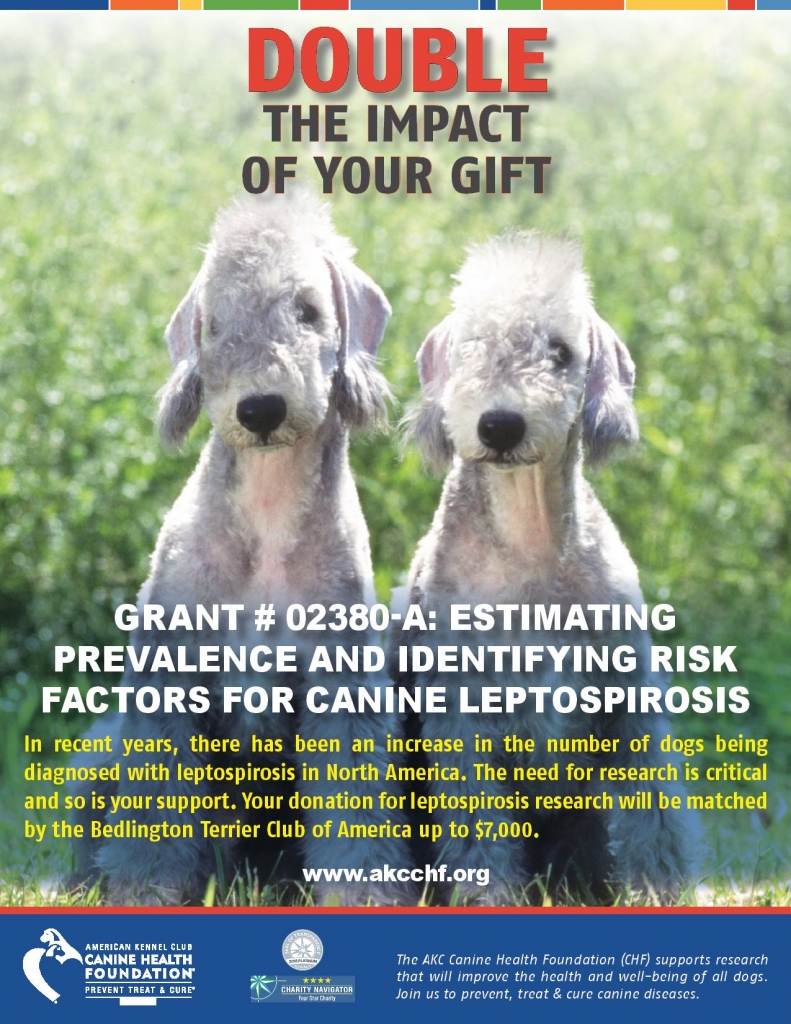ABOUT THE STUDY
In order to determine the geographic areas of highest risk, investigators at Ohio State University, with support from AKC Canine Health Foundation (CHF), are using an existing large international database of dogs to determine the occurrence, region, and changes over time of canine leptospirosis. Grant #02380- A: Estimating Prevalence and Identifying Risk Factors for Canine Leptospirosis in North America will determine current “hot spots” for canine leptospirosis and evaluate them in detail. Maps will be created for use by dog owners and veterinarians to identify areas of greatest risk. The maps and corresponding data will allow individuals with dogs living or traveling to higher-risk areas to protect them against leptospirosis.


